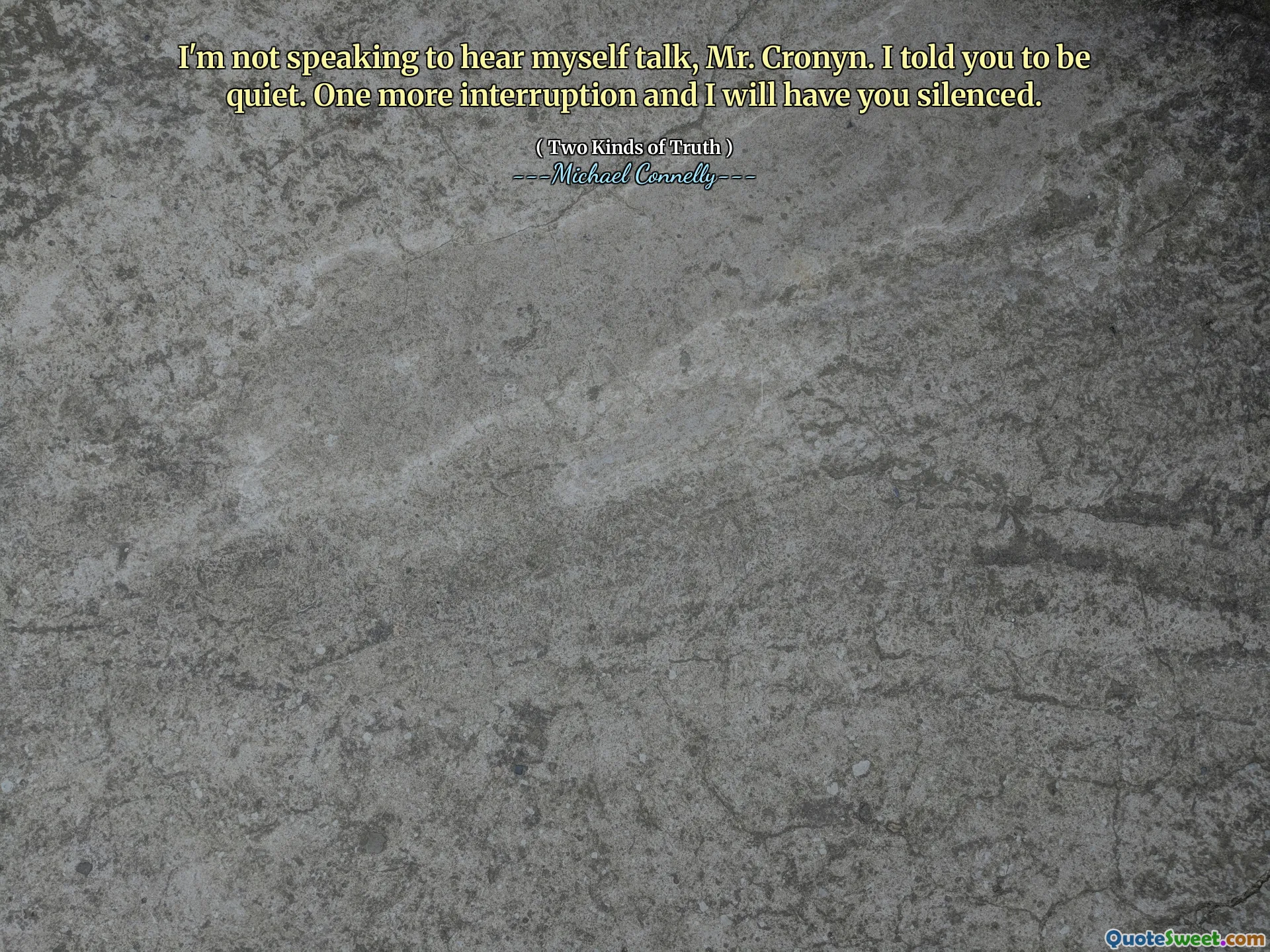
I'm not speaking to hear myself talk, Mr. Cronyn. I told you to be quiet. One more interruption and I will have you silenced.
This quote from Michael Connelly's Two Kinds of Truth presents a sharp and assertive tone, reflecting a situation charged with tension and authority. The speaker is clearly emphasizing control over the conversation and setting strict boundaries, likely in a scenario where maintaining order and dominance is critical. It evokes themes of power dynamics and communication, highlighting how dialogue can be weaponized or moderated to assert influence. The phrase "I'm not speaking to hear myself talk" suggests that the speaker’s words carry purpose and weight — they are not idle chatter but intention-driven discourse. By directly addressing Mr. Cronyn, the quote personalizes the conflict, adding a layer of direct confrontation. The threat to have Mr. Cronyn "silenced" upon further interruption underscores a high-stake situation where interruptions could disrupt a delicate balance, whether in a legal, political, or personal context. This also brings about reflections on freedom of speech and control: when does the need to preserve order or authority override one’s right to interject or express dissent? Furthermore, the quote elicits a strong emotional reaction — perhaps apprehension or intimidation — which could mirror a power struggle between characters. Overall, the piece effectively enforces the gravity of communication in tense moments and how language can both command respect and enforce silence, making it resonate with anyone who has experienced authoritative control or conflict within dialogue.






